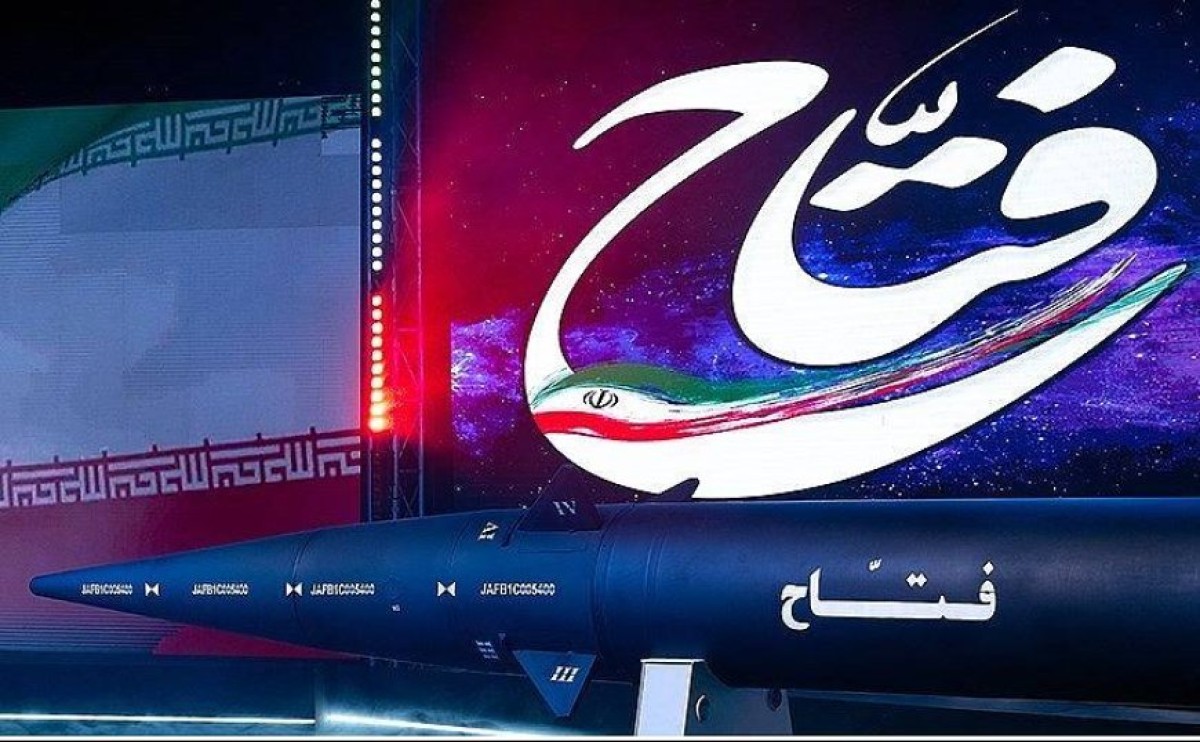 171
171
By: H. Zaïm-Bashi
Military analysts classify missiles into three types in terms of their speed: subsonic, ultrasonic, and intercontinental. For example, the Chinese HY2 and C802 cruise missiles, as well as the American Tomahawk, are subsonic, whereas the Russian Kinzhal is hypersonic. Hypersonic missiles usually move at speeds ranging from Mach 5 to Mach 10, with each Mach equaling 1,225 kilometres per hour. Hypersonic missiles can manoeuvre and alter direction at extremely high velocities, making it impossible for anti-missile defence systems to foresee their target and trajectory and successfully intercept them.
Hypersonic missiles, like ballistic missiles, can move at speeds exceeding five times the speed of sound and can carry nuclear warheads. While the United States has developed systems to defend against cruise and ballistic missiles, its ability to intercept and shoot down a hypersonic missile is still in question. The Zionist media expressed its initial inaction following Iran's unveiling of the first hypersonic missile. However, the prospect of an Iranian missile capable of reaching Tel Aviv within 400 seconds should cause grave concerns for the Zionist regime. After some time, global media outlets responded. According to a report by the "United Press," high-ranking officials in the Pentagon are expressing concern over the US Army's inability to counter Fattah.
US defence officials have issued a warning that the present ground and satellite technologies are unworthy of intercepting hypersonic weapons, according to the same report by the United Press. Earlier, former undersecretary for engineering research and defence at the US Department of Defence, Michael Griffin, testified at a congressional hearing that the US currently lacks systems capable of effectively countering hypersonic missiles. The Al-Arabiya news website also published similar concerns from senior US officials.
Meanwhile, according to the US Office of the Director of National Intelligence [ODNI], Iran boasts the highest number of ballistic missiles in the region. The Arms Control Association in Washington, D.C., disclosed that Iran possesses a wide range of short and intermediate ballistic missiles. These missiles include the Shahab-1, which has a range of 300 km; the Zolfaghar, which has a range of 700 km; and the Shahab-3, which has a range of 800 to 1000 km. Additionally, Iran's ballistic arsenal includes the "Emad-1," which can reach up to 2000 km, and the "Sejjil," which is currently in development and has a projected range of up to 2500 km.
The Iraqi Islamic resistance organisation Al-Nujaba published an article titled "Fattah has vanquished Israelis," highlighting Tehran's recent military achievement. The article concludes with an Arabic proverb that perfectly sums up the story: "The magic has backfired on the magician."
The recent revelation of the Fattah carries far-reaching implications for both Iran's foes and the international community. The main message it had was that the Islamic Republic of Iran will never cease progressing and becoming stronger. In fact, Iran's acquisition of hypersonic missiles clearly demonstrates that the Zionist regime's efforts and spending to develop a defence system against Iran's missiles were a complete failure.
The most important message that Fattah conveyed was that hypersonic missiles can carry a nuclear warhead and deliver it with greater precision at the intended target. Therefore, by developing this new missile, Iran is attempting to increase its military superiority as well as create a high level of deterrence against its enemies. In the tumultuous region of West Asia and the Persian Gulf, Fattah heralds stability, peace, and regional harmony. Moreover, Iran's defence doctrine includes supporting the military development programmes of its allies across the globe.
On the other hand, Fattah is tantamount to a significant setback for the United States. From now on, Washington will lose its weapons market in the countries of the West Asian region; in other words, Iran has guaranteed the security of the countries of the region by acquiring the technology to build supersonic missiles and will not allow the wealth and resources of the Muslim countries of the region to be wasted anymore to buy weapons from the western imperialists.
Finally, not only is this achievement of great military significance for Iran, but it has also taken many by surprise, including both allies and adversaries. This accomplishment serves as a reminder that Tehran is well-versed in defeating its opponents. Iran's recent achievements, similar to those of Fattah, have now pushed the US and European leaders to reconsider their nonconstructive approaches to the 2015 nuclear deal by defeating conspiracies and subversive plots.
Comment
Post a comment for this article